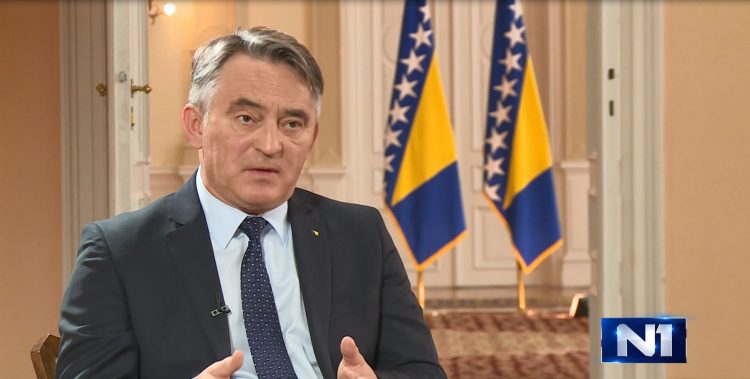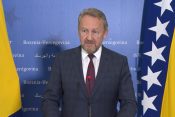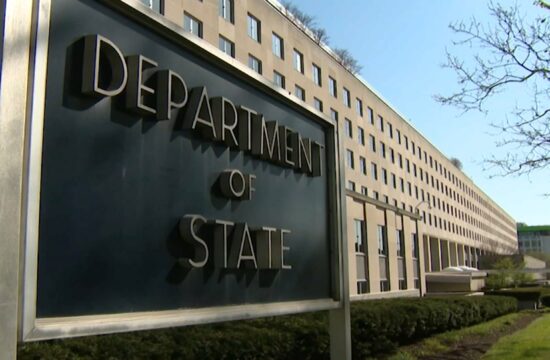
Croatia is risking a conflict with NATO, because of “forcing the outdated ethnic concept of constituent peoples in Bosnia and Herzegovina,” Bosnian Presidency member Zeljko Komsic said, commenting on the latest statement of his Croatian counterpart Zoran Milanovic who announced prior to the Brussels NATO summit that Croatia won't agree with a NATO declaration that does not mention three Bosnia's constituent peoples, the Croats being one of them.
“Because it is forcing the outdated ethnic concept of constituent peoples, Croatia risks getting into a conflict with NATO. It is entirely clear from the European Court of Human Rights (ECHR) rulings that this concept in Bosnia and Herzegovina should be rejected, and it is clear that we obliged to the equality of all citizens and not to so-called constituent peoples in the Reform Programme (for NATO),” said Komsic.
The leaders of NATO's 30 member-states, including President Milanovic, will gather in Brussels on Monday for a summit, which is expected to define the alliance's reforms in the period until 2030.
Seven documents will be adopted at the summit, including a joint declaration that mentions Bosnia and Herzegovina for which Milanovic says has been prepared for a week.
But, Milanovic announced Croatia will not agree with the document if it does not mention Bosnia's three constituent peoples – namely, the Bosniaks, Croats and Serbs, or the Dayton Peace Agreement – the peace deal which ended the Bosnian 1992-95 war and set up the country's constitutional and institutional systems, often dubbed as one of the most complicated ones in the world.
The peace deal which contains the country's Constitution had divided the country into two semi-autonomous regions – the Bosniak-Croat dominated Federation (FBiH) and the Serb-dominated Republika Srpska (RS), with both these entities and three major ethnic groups being equally represented in the state institutions. Over the years, the country's true progress has been hindered by political disagreements between the three groups and their opposing aspirations.
The legitimacy of Komsic, who was elected as the Croat member of Bosnia's tripartite Presidency in accordance with current election law, is often disputed by the conservative and strongest Croat party in Bosnia and Herzegovina, the HDZ BiH and some of Croatia's officials, as they claim the law enabled him to be elected mostly by the votes of the Bosniaks.
In the ongoing talks on electoral reform, Bosnian Croat officials represented by the HDZ BiH, say they want to ensure their representatives in the government are elected by the votes of the Croats. For now, the talks only include the HDZ and the main Bosniak SDA party, but other parliamentary parties and institutions are expected to join the talks on electoral reform.
Similar to the SDA, Komsic's left-leaning Democratic Front is advocating the civic concept for Bosnia and Herzegovina.
Responding to Croatian President, Komsic said Croatia is not likely to stop something that is in the interest of NATO by advocating something that is not the standard of the EU or NATO.
“Over the past days, we were trying to explain to Croatian officials that what they are asking for in BiH is not linkable to NATO. Now NATO is to decide whether they prefer the standards and interests of the alliance or the anti-NATO and anti-European standards of the officials of Croatia,” stressed Komsic.
“It is good that the situation is getting more clear,” he added.









Kakvo je tvoje mišljenje o ovome?
Budi prvi koji će ostaviti komentar!